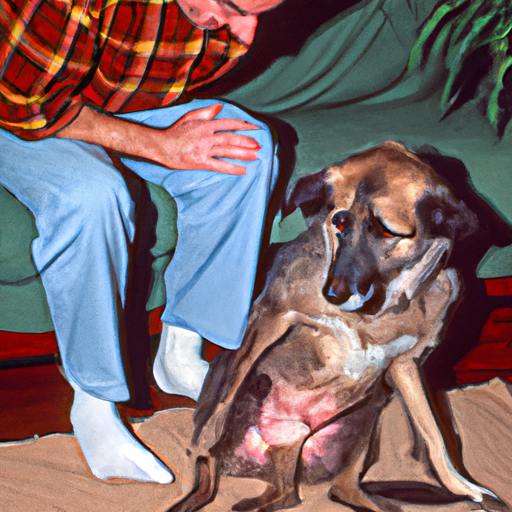Understanding the Problem
As a pet owner, it’s only natural for you to be concerned and alarmed when you notice that your dog’s belly has suddenly swelled up. There might be several reasons behind this swelling, ranging from harmless to serious health conditions. Let’s dive into the possible causes and help you understand what might be going on with your furry companion.
Possible Causes of Canine Belly Swelling
-
Overeating: Dogs love to eat and sometimes, they might overindulge, leading to a temporary swollen belly. This is usually harmless and should resolve itself within a few hours.
-
Bloating or Gastric Dilatation-Volvulus (GDV): This is a serious and life-threatening condition that requires immediate veterinary attention. GDV occurs when the dog’s stomach is filled with gas and either rotates or twists.
-
Ascites: This is a condition characterized by the buildup of fluid in the abdomen, leading to swelling. It could be due to liver disease, heart failure, or severe intestinal disease.
-
Obesity: If the swelling has been gradual and your dog has also been gaining weight, it may be due to obesity.
-
Pregnancy: In female dogs, a swollen abdomen could be a sign of pregnancy.
| Causes | Symptoms | Treatment |
|---|---|---|
| Overeating | Temporary swelling, normal behavior | Monitor, control diet |
| GDV | Sudden swelling, discomfort, drooling, unsuccessful attempts to vomit | Immediate veterinary attention |
| Ascites | Gradual swelling, lethargy, decreased appetite | Veterinary attention, diagnosis, and treatment |
| Obesity | Gradual swelling, weight gain, difficulty moving | Dietary control, exercise |
| Pregnancy | Swelling, behavioral changes, increased appetite | Veterinary confirmation and care |
What to Do If Your Dog’s Belly is Swollen
Firstly, don’t panic. Evaluate the symptoms your dog is displaying. If the swelling seems sudden and your dog appears to be in distress, contact your vet immediately. In less urgent cases, monitor your dog’s behavior and eating habits. Make a note of any changes and consult your vet.
Prevention Measures
- Ensure your dog is eating a balanced diet and getting regular exercise to prevent overeating and obesity.
- Feed your dog smaller, more frequent meals to reduce the risk of GDV.
- Regular vet check-ups can help detect any underlying health conditions that may lead to ascites.
Frequently Asked Questions
Q: How quickly should I react to my dog’s belly swelling?
A: It depends on other symptoms. If your dog seems distressed, contact your vet immediately. If not, monitor for a few hours and then call your vet.
Q: Can belly swelling be prevented?
A: Some causes can be prevented by proper diet and exercise, but others may be due to underlying health conditions.
Q: How is GDV treated?
A: GDV is a medical emergency and often requires surgery.
Remember, your dog’s health is always a priority. Any sudden changes, including a swollen belly, warrant a call to your vet. It’s always better to be safe than sorry, and your furry friend will thank you for your vigilance and care.



